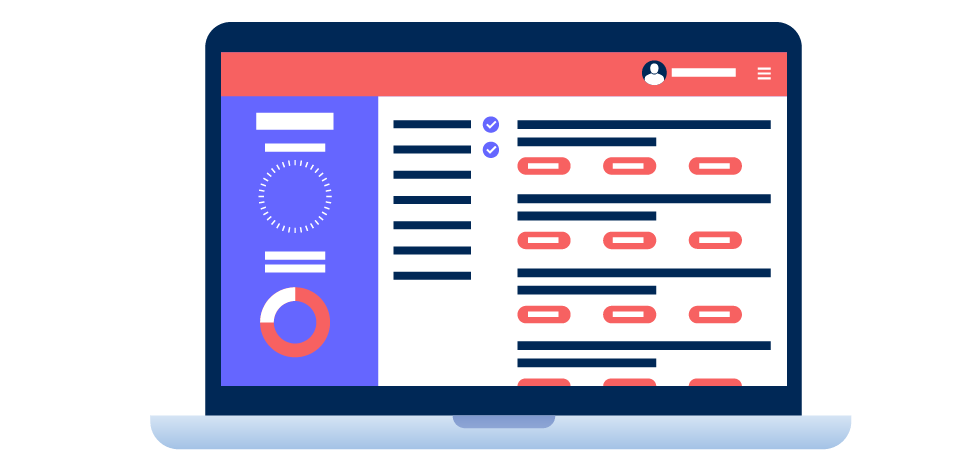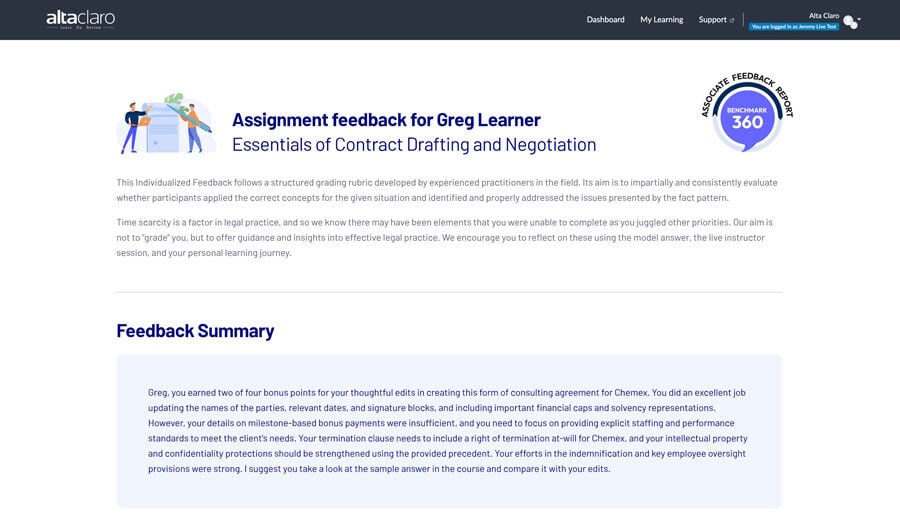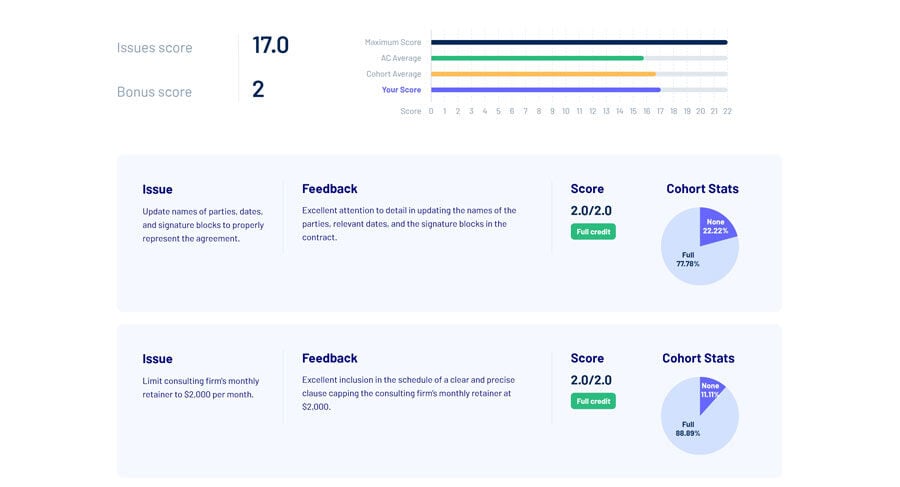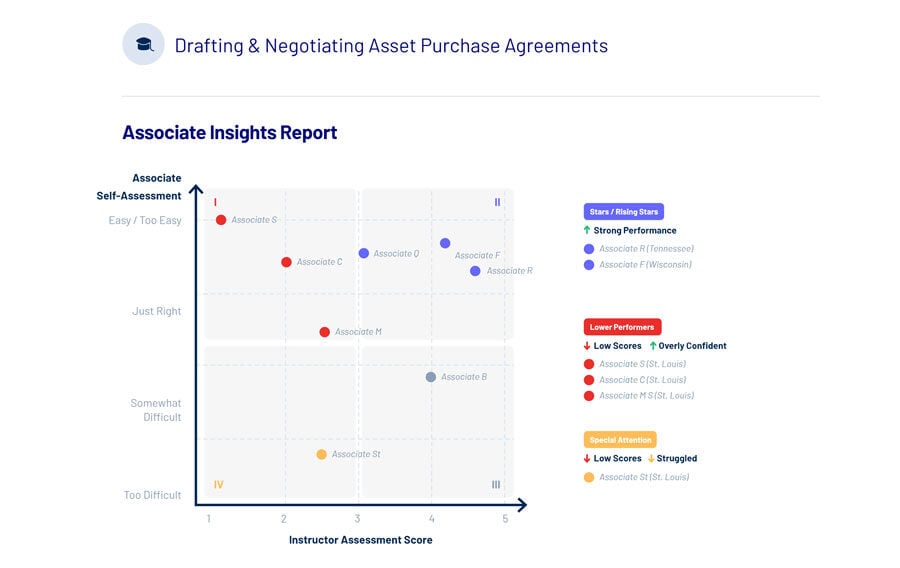Drafting and Negotiating SaaS Agreements
Training courses associates and partners love and law firms need.
Upon completion of this course, participants will be able to:
- Introduction to SaaS Agreements
- What Is a SaaS Agreement?
- How Do SaaS Agreements Differ in Business-to-Business (B2B) and Business-to-Consumer (B2C) Arrangements?
- The Core Sections of a SaaS Agreement
- What Are the Core Sections of a SaaS Agreement?
- What Is the Scope of Services in SaaS Agreements?
- What Are Usage Restrictions in SaaS Agreements?
- What Are Pricing and Subscription Models in SaaS Agreements?
- What Are the Costs and Benefits of Auto-Renewal Provisions?
- What Are Additional Sources of Revenue in SaaS Agreements?
- Who Owns Data and Feedback Rights in SaaS Agreements?
- Other Provisions in SaaS Agreements
- What Are Representations and Warranties in SaaS Agreements, and Why Do We Use Them?
- What Are Typical Warranties in SaaS Agreements?
- What Are Typical Indemnities in SaaS Agreements?
- How Can Each Party Limit Its Liability in SaaS Agreements?
- Terminating a SaaS Agreement
- Why Might a Subscriber Terminate a SaaS Agreement?
- Why Might a SaaS Provider Terminate a SaaS Agreement?
- What Is Included in the Effect of Termination Section in SaaS Agreements?
- Service Level Agreements in SaaS Agreements
- What Are Service Level Agreements?
- What Are the Key Performance Metrics Found in Service Level Agreements?
- Data Security and Privacy Compliance in SaaS Agreements
- What Do We Mean by Data Security and Privacy?
- How Should the Parties Approach Data Security in SaaS Agreements?
- Which Domestic Privacy Rights Are Relevant to SaaS Agreements?
- What Is the Impact of International Privacy Law on US-Based SaaS Providers?
Class Content Overview
Course Details
Participants will be asked to review and propose revisions to a SaaS agreement based on a set of facts relating to a hypothetical client’s goals and concerns. Participants will be asked to focus on six specific concerns and identify and explain for each: (1) the relevant provision(s); (2) any revisions, deletions, or additions the participant would make to the identified provisions; (3) any additional information needed to fully respond; and (4) any other conforming edits or additional documents needed to ensure the client is adequately protected.
Instructors Who Practice What They Teach
Our vetted instructors are global practitioners with outstanding professional and educational qualifications and demonstrated achievement in their fields. All have 10+ years Big Law experience.
In addition to their accomplishments as practitioners, our instructors are also passionate about teaching. We carefully interview instructor candidates to assess personality, domain expertise and effectiveness in the classroom. Our instructors must maintain a 4.5 out of 5 rating from students.
Frequently Asked Questions:
What are the best training programs for law firm associates?
The best training programs for law firm associates combine essential legal knowledge with practical skill development. AltaClaro offers comprehensive training solutions that encompass various topics crucial for associates' success, ensuring they are well-equipped for their roles in a fast-paced legal environment.
How can legal departments enhance training for summer interns?
To enhance training for summer interns, legal departments can implement structured programs that include mentorship, workshops, and hands-on projects. AltaClaro's training modules can serve as an excellent foundation, providing interns with practical skills they can apply during their internship and beyond.
What innovative legal training solutions are available for law firms?
For law firms looking to innovate their training approaches, AltaClaro offers a range of cutting-edge solutions. Our platform features custom training programs, on-demand resources, and analytics tools that empower firms to deliver relevant and effective legal training.
Are there experiential learning courses for law professionals?
Yes, we provide experiential learning courses tailored for law professionals. Our training platform emphasizes real-world scenarios that allow participants to apply their knowledge in a practical setting, making the learning experience both engaging and relevant.
What online training options improve practical skills for lawyers?
At AltaClaro, we offer a variety of online training options designed to enhance practical skills for lawyers. From our immersive practice-driven training modules to interactive courses focusing on key areas like negotiation and litigation, there's something for everyone looking to advance their career.























